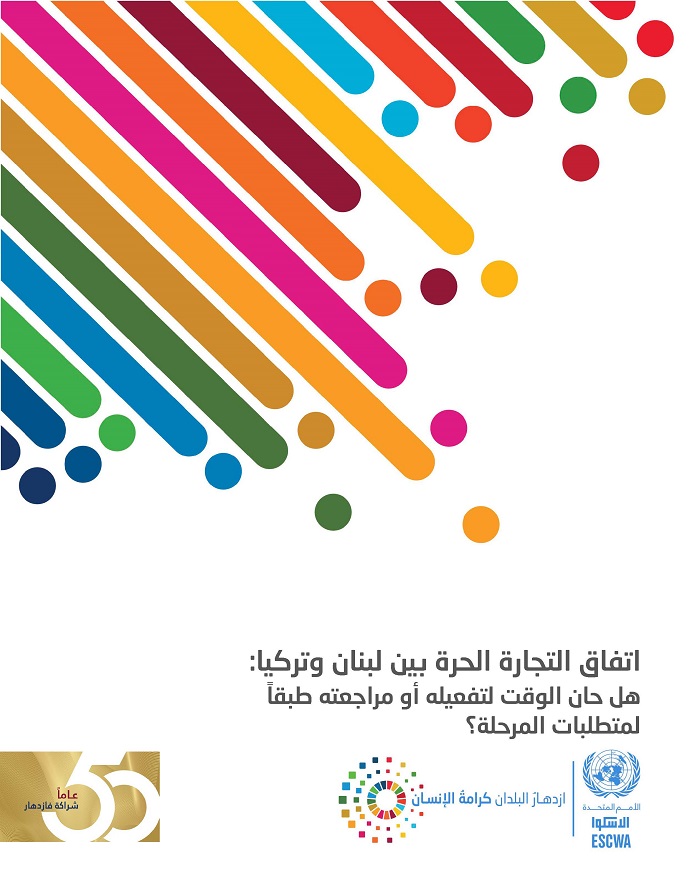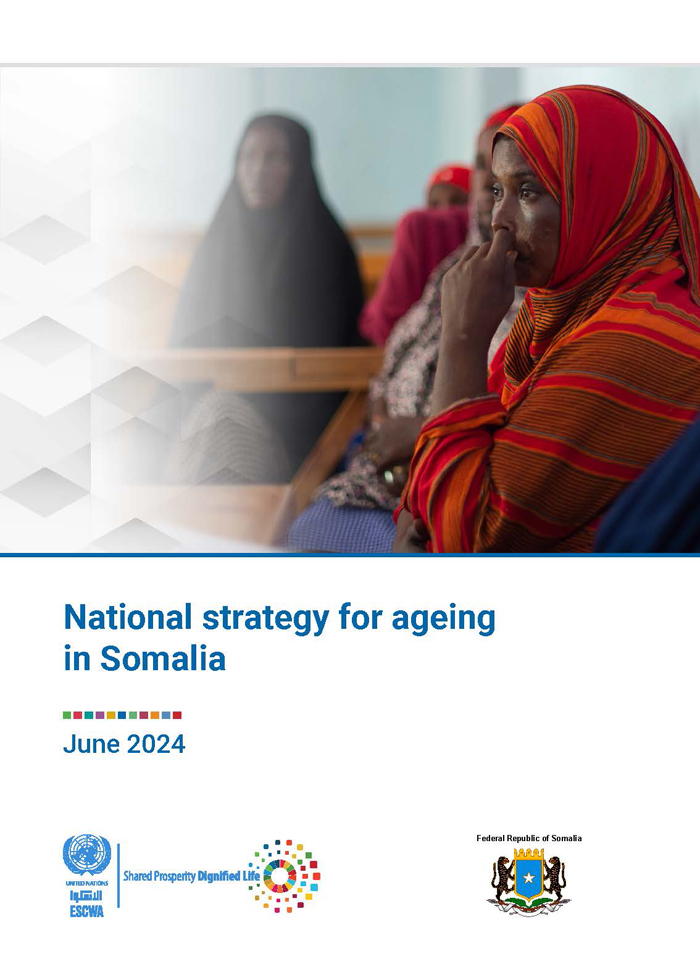
ESCWA Publication: E/ESCWA/CL3.SEP/2023/TP.2
Country: Lebanese Republic, Türkiye
Publication Type: Information material
Cluster: Shared Economic Prosperity
Focus Area: Financing for development, Inclusive development, Macroeconomics, Trade & regional connectivity
Initiatives: Financial & macroeconomic statistics for National accounts, Trade & industry statistics, Development challenges
SDGs: Goal 8: Decent Work and Economic Growth, Goal 9: Industry, Innovation and Infrastructure, Goal 12: Responsible Production and Consumption
Keywords: Free trade, Trade agreements, Lebanon, Turkey, Development, Economy measures, Trade policy
Free Trade Agreement between Lebanon and Türkiye: is it time to implement and review it in line with the current requirements?
April 2023
The Economic and Social Commission for Western Asia (ESCWA) conducted an evaluation of the free trade agreement (FTA) between Lebanon and Türkiye, which has not yet been implemented. The evaluation report was prepared at the request of the Lebanese Ministry of Economy and Trade, as part of its efforts to develop a new strategy for inclusive development. This strategy responds to the current requirements and helps Lebanon emerge from the crisis, and transition to a modern and diversified economy. The experiences of Arab States, except Egypt, in trade integration with Türkiye demonstrated that the latter was the most prominent beneficiary of trade agreements. This imbalance stemmed from the significant disparity in production capacities and competitive advantages, which made it difficult for most Arab States to compete with Turkish goods, whether in domestic markets or in the Turkish market. The simulation results of the FTA between Lebanon and Türkiye confirmed that the agreement would not be profitable for Lebanon and might negatively affect the new development strategy, since it contradicted with the possibility of diversifying the Lebanese economy and preserving sensitive sectors, at least in the short and medium terms.
In this context, the FTA implementation requires rehabilitating the national economy by defining priorities for economic transformation and the new trade policy. According to the report, the FTA should rather not be implemented until the new trade policy is completed and the sensitive sectors that require a minimum level of protection prior to their liberalization are identified, whether with Türkiye or any other trading partners.
Related content
Financing for development
, Inclusive development
, Macroeconomics
, Trade & regional connectivity
,
The Economic and Social Commission for Western Asia (ESCWA) conducted an evaluation of the free trade agreement (FTA) between Lebanon and Türkiye, which has not yet been implemented. The evaluation report was prepared at the request of the Lebanese Ministry of Economy and Trade, as part of its efforts to develop a new strategy for inclusive development. This strategy responds to the current requirements and helps Lebanon emerge from the crisis, and transition to a modern and diversified economy. The experiences of Arab States, except Egypt, in trade integration with Türkiye demonstrated that the latter was the most prominent beneficiary of trade agreements. This imbalance stemmed from the significant disparity in production capacities and competitive advantages, which made it difficult for most Arab States to compete with Turkish goods, whether in domestic markets or in the Turkish market. The simulation results of the FTA between Lebanon and Türkiye confirmed that the agreement would not be profitable for Lebanon and might negatively affect the new development strategy, since it contradicted with the possibility of diversifying the Lebanese economy and preserving sensitive sectors, at least in the short and medium terms.
In this context, the FTA implementation requires rehabilitating the national economy by defining priorities for economic transformation and the new trade policy. According to the report, the FTA should rather not be implemented until the new trade policy is completed and the sensitive sectors that require a minimum level of protection prior to their liberalization are identified, whether with Türkiye or any other trading partners.



